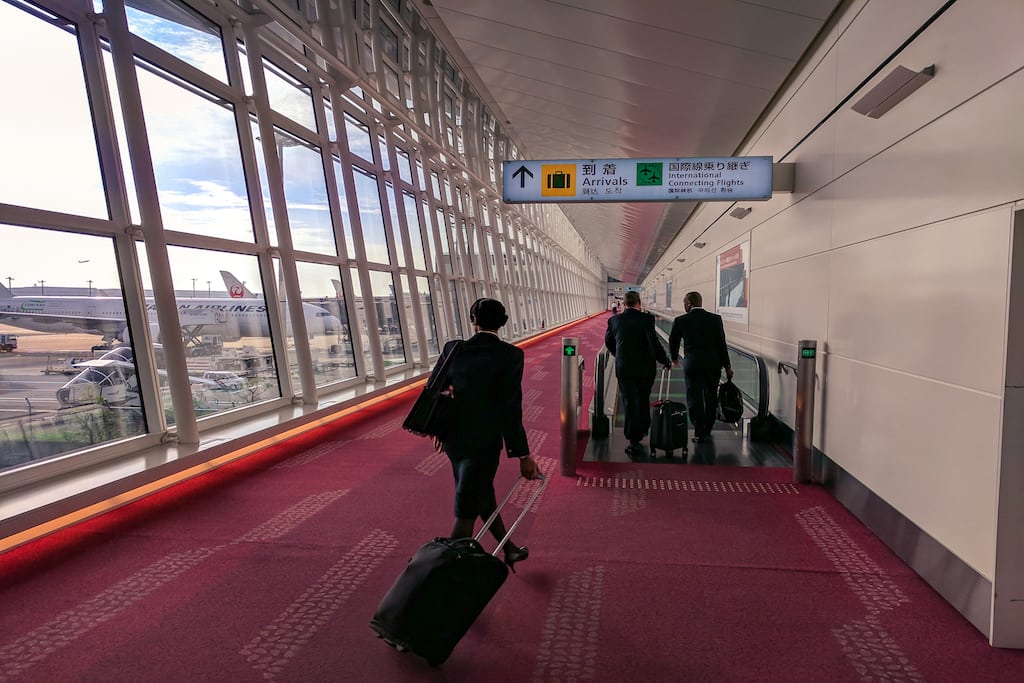Skift Take
The foundational work is being done to help corporate travel catch up to online travel in terms of booking technology and service delivery, although no one is really sure when the foundational work will end.
This week I pulled a few threads together from recent conversations with the leaders behind the technology innovations at the world’s biggest travel management companies.
Beyond the talk of big data and personalization that we have all come to know and love, one clear trend emerged: Companies are working to create more personalized and powerful tools for business travelers, although no one is sure when this more-connected future will become a widespread reality.
Meanwhile, developing these capabilities will mean happier clients and better relationships with their travel partners. It will also create differentiation among the players, who may have prioritized dissimilar technologies.
Check out the story, and others below.
If you have any feedback about the newsletter or tips, feel free to reach out via email at [email protected] or tweet me at @sheivach.
— Andrew Sheivachman, Business Travel Editor
Airlines, Tech, and distribution
Corporate Travel Agencies Build for an Uncertain Future: Even big travel management companies, which usually resist change, are planning ahead to better anticipate traveler and travel manager needs. No one’s quite sure when this more connected and insightful future will arrive, though.
United CEO Munoz’s Polaris Promise Never Matched Reality: A first-time business class flyer might love the dog-and-pony show United Airlines promised with its Polaris service. But your average frequent flyer prefers a more consistent experience, even if it’s not as strong.
Travelport Is Diversifying With Strong Growth in Payments Tech: How is Travelport competing against much bigger companies like Sabre and Amadeus? By creating technology solutions its clients actually want to use while expanding in the world’s fastest-growing regions for travel.
Qantas and Virgin Australia Battle Over In-Flight Wi-Fi Rollouts: Both Qantas and Virgin Australia should have Wi-Fi available on all domestic flights by the end of 2018. While travelers want to stay connected, they probably won’t pay for Wi-Fi, but might choose flights on the basis of internet coverage, especially on longer routes.
Air France-KLM Goes on the Offensive to Counter Discount Rivals: Given Air France-KLM Group’s recent history of losses, it might not be the wisest move to go on a capacity growth spurt, especially when going up against carriers with a significantly lower cost base.
Ground Transport
Uber Adds Safety Measures to Appease London’s Regulator: London’s transport authority is right to put the unicorn in its place, stressing Uber’s obligation to maintain public safety and support its own drivers.
Avis Budget Faces Proxy Fight Over Lack of Innovation: Sometimes it takes newcomers with fresh ideas to steer a company in the right direction. Avis has made some progress but it looks like its board is in dire need of new faces to prevent its company from becoming obsolete.
SUBSCRIBE
Skift Business Travel Editor Andrew Sheivachman [[email protected]] curates the Skift Corporate Travel Innovation Report. Skift emails the newsletter every Thursday.
Subscribe to Skift’s Free Corporate Travel Innovation Report
The Daily Newsletter
Our daily coverage of the global travel industry. Written by editors and analysts from across Skift’s brands.
Have a confidential tip for Skift? Get in touch
Tags: business travel, ctir
Photo credit: Business travelers arrive at Haneda Airport in Tokyo. The foundational work is being done to help corporate travel catch up to online travel in terms of booking technology and service delivery. Aleister Kelman / Flickr


